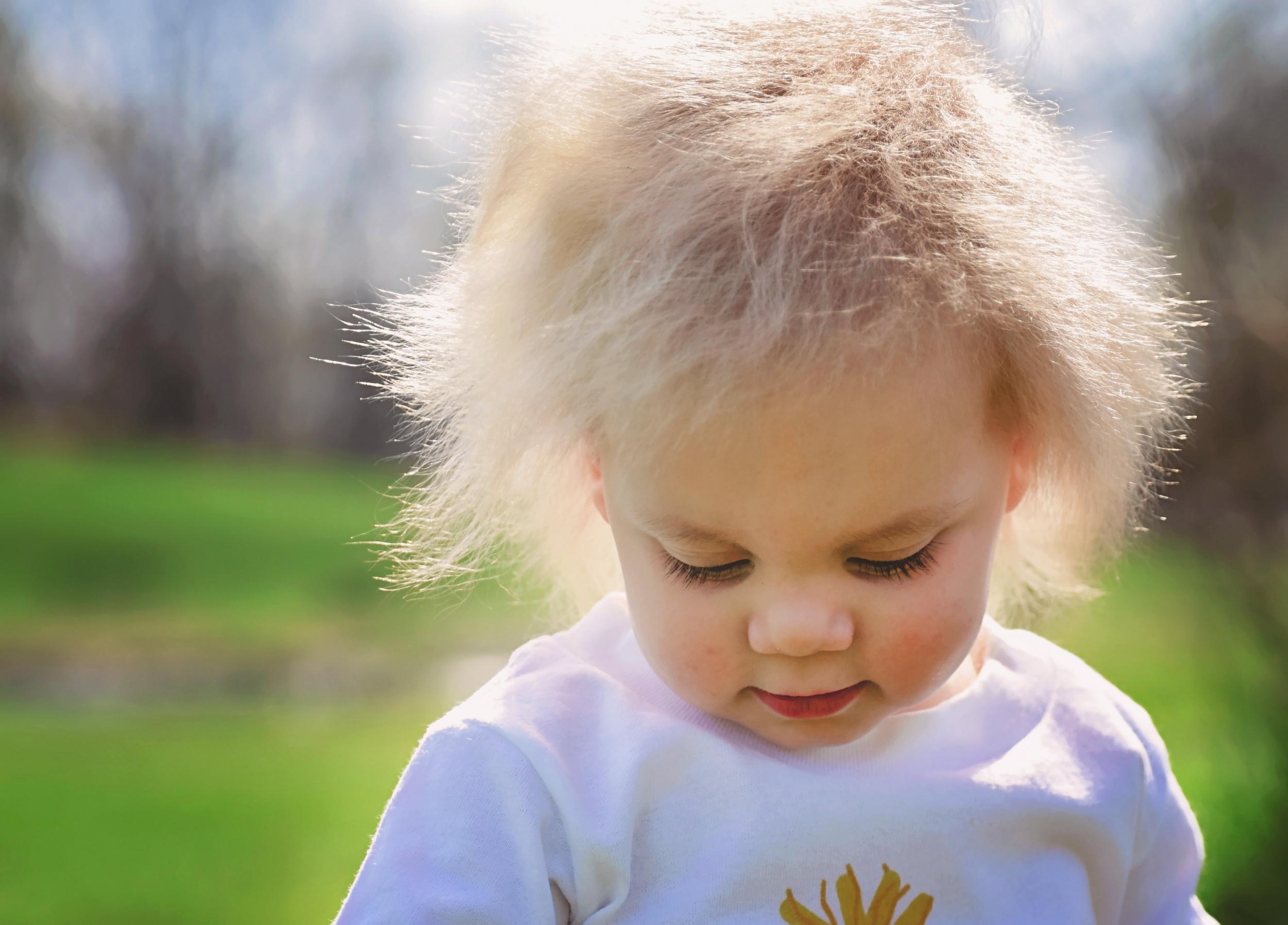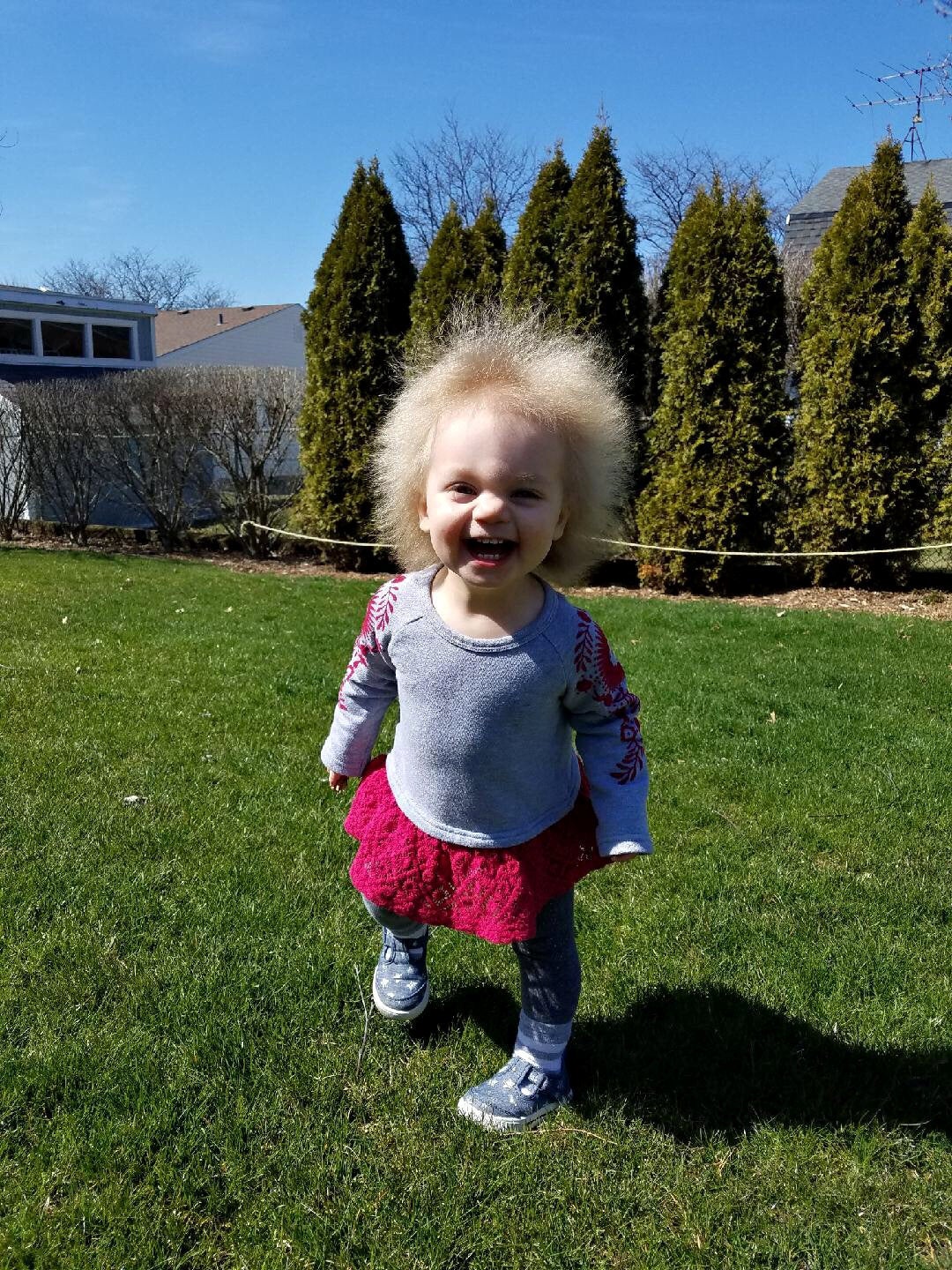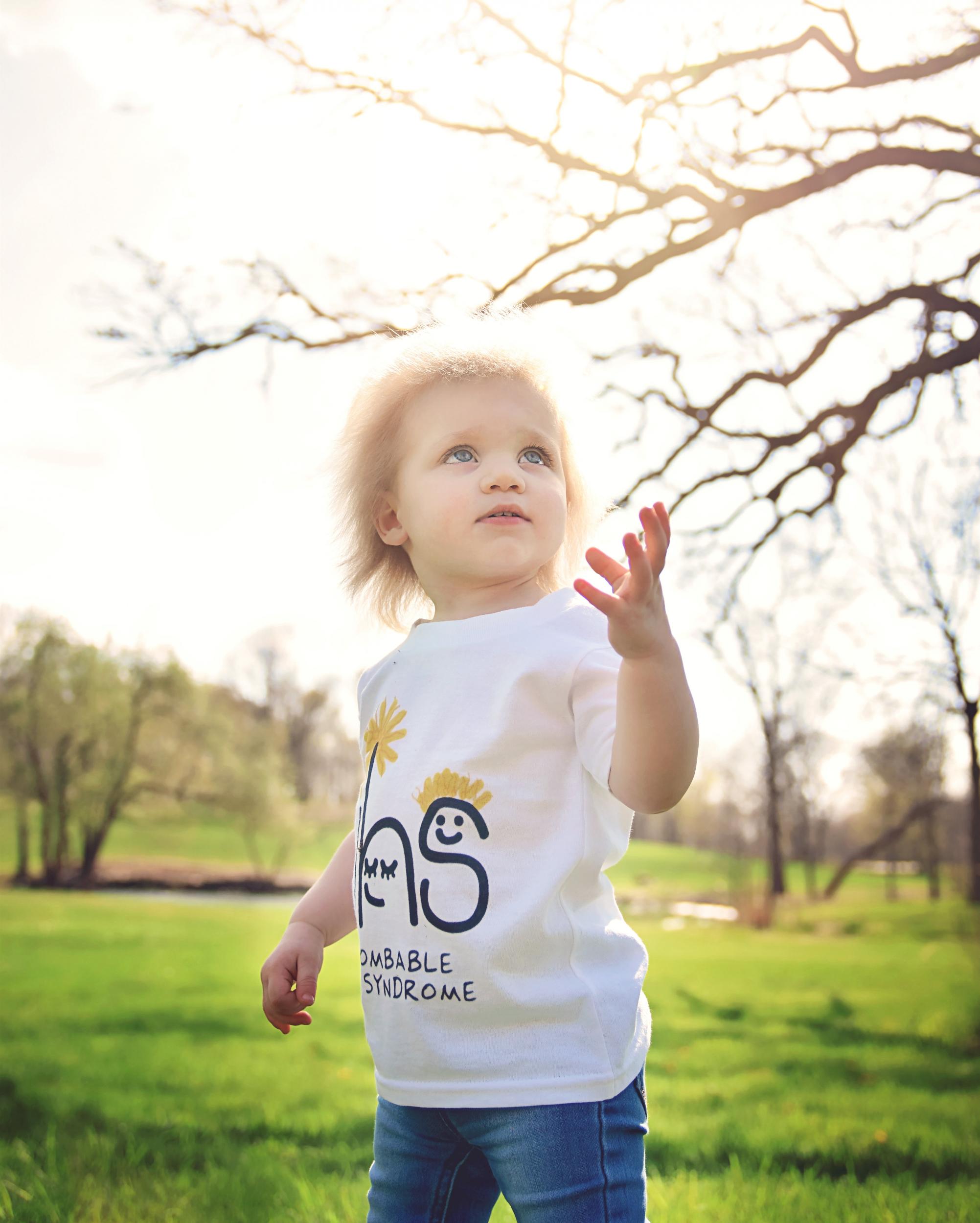Baby with extremely rare condition has ‘uncombable hair’
‘We want her to embrace it and love herself just the way she is’
Your support helps us to tell the story
From reproductive rights to climate change to Big Tech, The Independent is on the ground when the story is developing. Whether it's investigating the financials of Elon Musk's pro-Trump PAC or producing our latest documentary, 'The A Word', which shines a light on the American women fighting for reproductive rights, we know how important it is to parse out the facts from the messaging.
At such a critical moment in US history, we need reporters on the ground. Your donation allows us to keep sending journalists to speak to both sides of the story.
The Independent is trusted by Americans across the entire political spectrum. And unlike many other quality news outlets, we choose not to lock Americans out of our reporting and analysis with paywalls. We believe quality journalism should be available to everyone, paid for by those who can afford it.
Your support makes all the difference.When Taylor McGowan was five months old, she started growing little tufts of blonde hair on her head.
As time went on, her bright blonde locks continued to grow outwards, seemingly untamable by any sort of product.
Eventually, Taylor’s parents Cara and Tom realised that their daughter may have a condition called “Uncombable Hair Syndrome”, after coming across pictures of other individuals on the internet with the same style of hair.

And it's real; there are currently around 100 reported cases of the condition worldwide, which is otherwise known by the medical term "Pili trianguli et canaliculi".
Cara and Tom, from Chicago, Illinois, sought the expertise of Professor Regina Betz at the University of Bonn in Germany.
Professor Betz is currently the leading figure in Uncombable Hair Syndrome Research.
Her team at the Institute of Human Genetics has stated that the condition is caused by a mutation in one of three genes - PADI3, TGM3 and TCHH.
After carrying out genetic testing on Taylor’s parents, it was discovered that they both carried the mutation of the PADI3 gene which they then passed onto their young daughter.
Cara and Tom originally tried to flatten Taylor’s hair. However, they soon decided to do away with any products and let their daughter’s hair grow naturally.
“In total we have tried all kinds of products, maybe 15 different things,” former mental health worker Cara said.
“She doesn’t really enjoy bows or having her hair braided so we have chosen to allow it to be wild and free.”

Cara revealed that they’d even dressed their toddler up as Albert Einstein for Halloween in order to encourage her to embrace her unique hair.
While many people compliment the young girl on her hair, she’s also been on the receiving end of some unkind comments.
“Many people will ask if our daughter has stuck her fingers in a light socket or if we have done something with her hair,” Cara said.
“My answer is, ‘No, she was born that way.’”
While Cara has found the bullying that Taylor’s endured upsetting, she wants to spread the positive message that it’s ok to be different.
“I absolutely love Taylor’s hair. I personally think it is gorgeous and it matches her personality because she’s outgoing and free.”
Cara created a Facebook page called “BabyEinstein2.0” so that people could follow Taylor’s journey and learn about the condition.

“My husband and I both have straight brown hair. Never in our wildest dreams did we have a condition like this,” Cara said.
“We want her to know she is beautiful and perfect and that everybody is unique.
“We want her to embrace it and love herself just the way she is."

Join our commenting forum
Join thought-provoking conversations, follow other Independent readers and see their replies
Comments